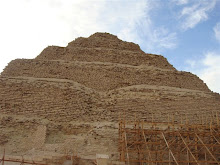According to British folklore, the weather on St Swithin's Day - 15 July - is an indicator of the weather pattern for the next 40 days.
"St Swithin's Day if it dost rain, for forty days it will remain.
"St Swithin's Day if it be fair, for forty days 'twill rain no mair."
Swithin (sometimes spelt Swithun) was a Saxon Bishop of Winchester and legend has it that as he lay on his deathbed, he asked to be buried outdoors, at one with nature. For nine years, his wishes were followed, but then, in 971, the monks of Winchester decided to build the saint a shrine inside the cathedral. Heavy rain storms on 15 July hindered attempts to remove his remains indoors, and this was taken to be a sign of St Swithin’s displeasure at the move.



